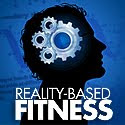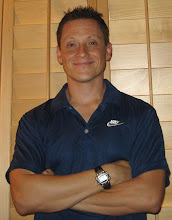I figured a good way to start my blog is to explain my basic philosophy on training, health, and high-performance living. In essence, my philosophy can be explained by the following habits that I try to instill in others as well as perform myself; these are newly updated from my website which I'm in the process of overhauling: www.keatssnideman.com
1) Stay Hydrated, aka: "Never Get Thirsty"
No person or athlete will function well with sub-optimal hydration status. How do you know if you’re hydrated? Consume enough water and/or other suitable beverages until your urine is very pale yellow or clear (even better). Dark yellow urine is totally unacceptable and means that you are already dehydrated!
2) StabilizeYour Blood Sugar Levels, aka: "Never Get Hungry"
Stabilizing your blood sugar throughout the day is best accomplished by eating approximately every 3 hours. This means eat breakfast, a mid-morning snack, lunch, a mid-afternoon snack, dinner, and possibly a pre-bed snack. People who eat in this fashion are leaner, build and maintain muscle mass easier, have better physical and mental performance, and even have lower blood lipid profiles compared to those who eat less frequently.
3) Get Enough Sleep, aka: "Go To Bed!"
Getting enough sleep may be the most important key to your health and wellness. According to Stanford sleep researcher William Dement, healthful sleep is more influential than diet, exercise and even heredity in predicting longevity. So how much sleep do we need? Experts will all agree that there is no magic number since people’s needs will vary based on age, health, and activity levels. As a rule of thumb, younger children and infants need more sleep while adults can do well getting between 7-9 hours of quality sleep. Teenagers usually need more sleep than adults possibly as high as 10 hours per night.
4) Focus On Eating Mostly Whole Foods, aka: "The Whiter The Bread, The Sooner You’re Dead"
What this means is that most of the foods you eat should come from natural, unprocessed sources with the food in its whole state with nothing added or taken away. This equates to eating real meats (not lunch meats or "Franken-foods"), real fruits and vegetable (not their juices), whole grains (like Oats groats, Quinoa, and Millet for example), nuts and seeds (including legumes) and even some small amounts of low-fat dairy products. Exceptions to this rule would be during or after strenuous exercise when blood sugar levels could be maintained or restored better with quicker and more refined sources of carbohydrate such as consuming a suitable sports beverage (Gatorade or Accelerade for example) or post-workout recovery drink (such as Biotest Surge).
5) Focus On Whole (Compound) Movements, aka: "The Body Knows Movements Not Muscles"
Most of one's training should be geared around large, multi-joint/compound movements such as deadlifts, squats, presses, pulls and rows. Athletic lifts such as the Olympic lifts and their derivatives (cleans, snatches, jerks, push-presses, etc...) should be a staple in most peoples’ programs as well. Supplementary and assistance lifts (i.e. single joint movements, abdominal and trunk isolation exercises, etc...) can be added where needed to make up for any deficiencies or imbalances that are not corrected with the compound lifts.
6) Strength & Speed Before Endurance, aka: What’s The Point Of Having Endurance If There’s No Strength Or Speed To Endure?
The two most fundamental physical attributes to focus on for almost any physical endeavor are maximal strength and then speed of movement. All other attributes or physical abilities stem from these two key motor qualities. Get the Strength and Speed where you need it to be, and then focus on the endurance (whether speed or strength-endurance). This is in stark contrast to how most people train for any fitness goal. Besides, as we age, it is speed of motion (i.e. power) and then strength that we lose that fastest. Interestingly, performance in endurance activities can be maintained to a much higher degree than speed or strength.
Tuesday, July 24, 2007
Subscribe to:
Post Comments (Atom)







5 comments:
Keats. this is great stuff. Nice to finally have you in blogville :)
Keats,
I like your philosophy! I followed a post by your brother on the Dragon Door forum, and I look forward to your future posts... welcome to the 'blogosphere'!
Interesting stuff to note. I noticed the nutrition aspect of your philosophy and was wondering on your thoughts of the philosophy behind the warrior diet. I'm not sure if you know but its a nutrition philosophy based on under-eating during the day and over-eating during the night. There's a bit of science and research attached to it and that's an oversimplified way of putting it, but its quite thought provoking. The book and some points can be found on dragondoor.com and their forum as well.
Thanks for the comments guys!
Darryl, thanks for the post.
I am familiar with the Warrior Diet and know that a lot of the Dragon Door community practices it.
My take on it is as follows: if you're relatively young and healthy and have no real interest in putting on any signifcant muscle, it might be a workable choice.
However, if someone has any type of metabolic damage or handles carbs terribly, I don't think the overfeeding at night is such a great idea. Besides, this is kind of how a lot of Americans already eat! I've seen some really jacked up people who skip breakfast, eat no lunch, perhaps have a refined snack in the afternoon, and then skarf down at dinner and all night long! It doesn't seem to work very well for them.
Bottom line: if you're already lean and wiry, the Warrior Diet will probably keep you that way. If you're metabolically hosed and fat; it might not be so good.
Just my 2 cents...
Wow! This is awesome!!!
I will start taking advantage of all your knowledge.
Post a Comment